Independents' Alliance of Moldova was a political party in Moldova, whose last chairman was Serafim Urechean.
Independents' Alliance of Moldova was a political party in Moldova, whose last chairman was Serafim Urechean.
During the last ten years the rights of local communities have been constantly violated. This was confirmed by the 400 mayors representing different localities, members of the National Mayors' League, representatives of the Federation of Local and Regional Powers and Association of Gagauz Mayors who gathered to openly oppose the intentions of the Communist governing to destroy the current local public administration system.
Participants to the Mayors' Assembly of the Republic of Moldova addressed an appeal to the President of the country, Chair of the Parliament and Prime Minister. They also reserved themselves the right to ask the Council of Europe to monitor the actions undertaken by the Communist governing in the field of local public administration.
An initiative group was formed including councilors, mayors, and citizens, which set up a socio-political organization aimed to represent the interests of independent mayors and councilors. It was to become a socio-political movement of the citizens associated regardless of nationality and religion, united by patriotic principles, dignity and human rights.
On October 13, 2001, the Founding Congress of the Independents' Alliance of the Republic of Moldova gathered 400 delegates from all the administrative territorial units of the Republic. The congress elected Serafim Urechean, Mayor of the Chişinău Municipality, as the Chair of the Alliance.
The Congress decided not to embrace any classical political platform, but rather decided the Alliance to become a democratically oriented socio-political movement, whose immediate goal would be to run in the upcoming elections within a broad democratic coalition.
Immediately after the Founding Congress, in November - December 2001 the Independents' Alliance of the Republic of Moldova embarked on establishing primary organizations in the territories. The party established ten primary organizations in two counties, 2 primary organizations in Gagauz-Yeri, five organizations in districts and ten in the Chişinău municipality.
Further, Chairs and Deputy Chairs of the county, territorial and local organizations were elected. Those structures would represent the party governing body in the time period between conferences and general assemblies. In addition, the Congress elected Revision and Control Commissions for Alliances' structures at all the levels.
The first Congress of the Independents' Alliance of the Republic of Moldova convened on January 19, 2002, in Chişinău and brought together 1,048 delegates from all over the Republic. At issue was the socio-political situation in the Republic of Moldova as well as Alliance's priorities for the future. The Congress adopted the Manifest "Independents' Alliance of Moldova - Moldova's pro-European project". Further the Congress elected Alliance's governing bodies, approved party symbol and anthem.
On July 19, 2003, IARM decided to suspend its activity and join the Party Alliance Our Moldova.
The history of Moldova can be traced to the 1350s, when the Principality of Moldavia, the medieval precursor of modern Moldova and Romania, was founded. The principality was a vassal of the Ottoman Empire from 1538 until the 19th century. In 1812, following one of several Russian-Turkish wars, the eastern half of the principality, Bessarabia, was annexed by the Russian Empire. In 1918, Bessarabia briefly became independent as the Moldavian Democratic Republic and, following the decision of the Parliament, united with Romania. During the Second World War it was occupied by the Soviet Union which reclaimed it from Romania. It joined the Union as the Moldavian ASSR, until the dissolution of the USSR. In 1991 the country declared independence as the Republic of Moldova.
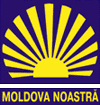
The Our Moldova Alliance was a social-liberal political party in Moldova led by Serafim Urechean, former mayor of Chișinău. It merged into the Liberal Democratic Party of Moldova (PLDM) during April 2011.
A municipal council is the legislative body of a municipality such as a city council or a town council.

Serafim Urechean is a Moldovan politician. He held the position of general mayor of Chișinău municipality (1994–2005) and interim prime minister of the Republic of Moldova. He was the chairman of the party Our Moldova Alliance (2003–2011), first deputy chairman of the Parliament of the Republic of Moldova (2009–2010) and president of the Court of Accounts of the Republic of Moldova (2011–2016).
The Popular Front of Moldova was a political movement in the Moldavian SSR, one of the 15 union republics of the former Soviet Union, and in the newly independent Republic of Moldova. Formally, the Front existed from 1989 to 1992. It was the successor to the Democratic Movement of Moldova, and was succeeded by the Christian Democratic Popular Front and ultimately by the Christian-Democratic People's Party.

The Pridnestrovian Moldavian Soviet Socialist Republic, also commonly known as Soviet Transnistria or simply known as Transnistria, was created on the eastern periphery of the Moldavian Soviet Socialist Republic (MSSR) in 1990 by pro-Soviet separatists who hoped to remain within the Soviet Union when it became clear that the MSSR would achieve independence from the USSR. The PMSSR was never recognised as a Soviet republic by authorities in either Moscow or Chișinău. In 1991, the Pridnestrovian Moldavian Republic succeeded the Pridnestrovian Moldavian Soviet Socialist Republic.
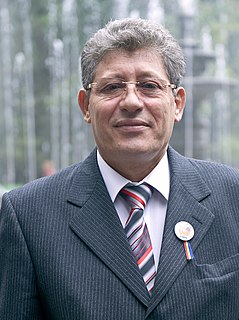
Mihai Ghimpu is a Moldovan politician who served as Speaker of Parliament and Acting President of Moldova from 2009 to 2010. He was member of Parliament of Moldova from 1990 to 1998 and from 2009 to 2019. Ghimpu held the position of leader of Liberal Party (PL) from 1998 to 2018.
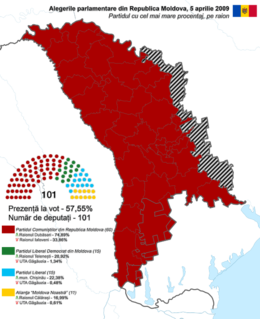
Parliamentary elections were held in Moldova on 5 April 2009. The Party of Communists of the Republic of Moldova (PCRM) won a majority of seats for the third consecutive occasion. Turnout was 59%, exceeding the 50% necessary for the election to be valid.
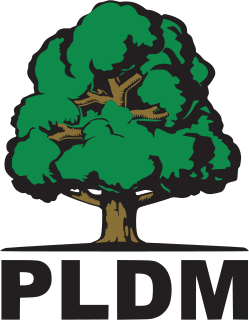
The Liberal Democratic Party of Moldova is a conservative political party in Moldova. The party is led by Tudor Deliu. Until 2016, PLDM was led by Vlad Filat, who was Prime Minister of Moldova from 2009 to 2013, in two cabinets. Immediately after the 2014 parliamentary elections, with 21 seats in the Moldovan Parliament, PLDM was the largest of the three democratic pro-European parliamentary parties.
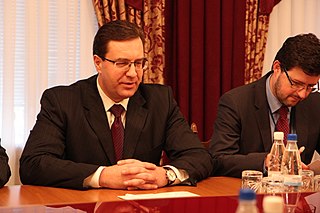
Marian Lupu is a Moldovan politician who was the President of the Parliament of Moldova between 2010 and 2013. From this position he served as Acting President of the Republic from 2010 until 2012.
The Alliance for European Integration was a centre-right anti-communist ruling coalition in Moldova from the July 2009 election until it lost to a no confidence vote in the Parliament on February 13, 2013. It was succeeded by the anti-communist Pro-European Coalition.

The Alliance for Democracy and Reforms was a governing coalition in Moldova between numerous non-Communist parties which had absolute majority in the Moldovan Parliament after the 1998 parliamentary election.

The Parliament of the Republic of Moldova elected on 6 March 2005 had 101 seats.
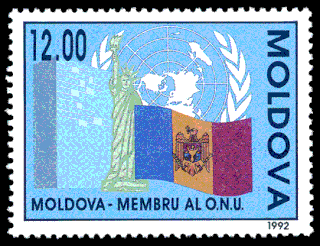
The following is timeline of the History of independent Moldova which started after the independence of Moldova.

The Commission for constitutional reform is a commission instituted in Moldova by acting President Mihai Ghimpu to adopt a new version of the Constitution of Moldova (1994).
Vasile Ursu is an engineer and is a Moldovan politician, the MP at the first Parliament of the Republic of Moldova in 1990-1994, acting interim general mayor of Chișinău in 2005-2007 and minister of transport and road management for 2007-2008. In 2008-2009 he held the position of Deputy Minister of Construction and Territory Development.

Chișinău has a recorded history that goes back to 1436. Since then, it has grown to become a significant political and cultural capital of South East Europe. In 1918 Chișinău became the capital of an independent state, the Moldavian Democratic Republic, and has been the capital of Moldova since 1991.
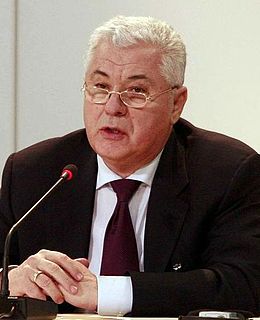
An indirect presidential election was held in Moldova on 4 April 2005. In the parliamentary elections in March 2005, the Party of Communists of the Republic of Moldova (PCRM) received 46.1% of the vote and won 56 seats in the 101-member Parliament — more than enough for the 51-vote minimum required to remain in government, but short of the 61 votes necessary to elect a president. However, President Voronin received the necessary support from the Christian Democratic People's Party, the Democratic and Social Liberal factions, after he promised to deliver on needed reforms and Euro-Atlantic integration for the country.. Voronin was re-elected with 75 votes; another candidate, Gheorghe Duca, received one vote, and two votes were invalid.
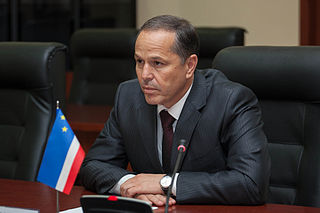
Mihail Formuzal is a Moldovan politician of Gagauz ethnicity, who was Governor (Başkan) of the Autonomous Territorial Unit of Gagauzia from December 2006 to March 2015.

The People's Party of the Republic of Moldova is a centre-left political party in the Republic of Moldova.